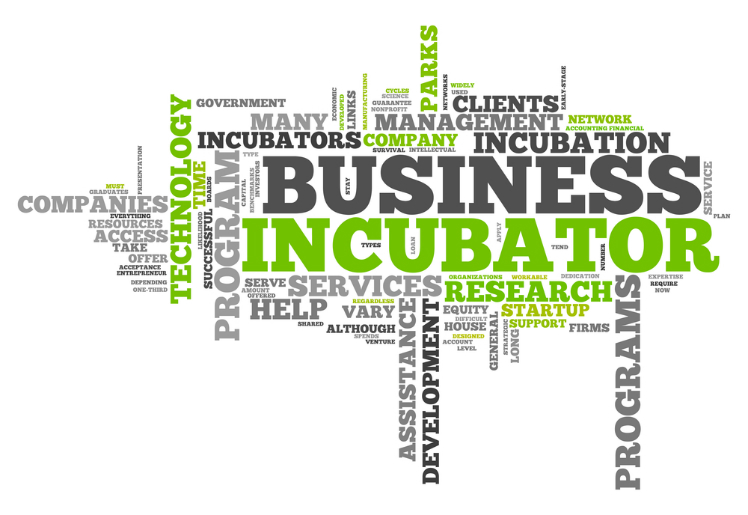Resource:How to select a business incubator for your consumer product
Contents
- 1 Introduction
- 2 Need and Goal
- 3 Potential Unexpected
- 4 Network (Who You Want to be Connected With)
- 5 Team Members (What Sorts of People You are Looking For)
- 6 Risk and Reward (cost, equity, money, time vs payoff, networks, funding, prototyping material, experience)
- 7 Support (students, faculty, staff needed to facilitate prior to and during the event)
- 8 Lessons learned and tips for others (what worked and what didn’t, and your recommendations for others)
- 9 Student Contributors
- 10 Recording of Interview
Introduction
Need and Goal
a) When selecting a startup incubator to attend or create, the most important thing is considering what are the most desirable outcomes from the incubator. For those pursuing a biomedical company, for example, lab space may be the most important thing - while for those creating a social media app, large quantities of people and eyes to test out the prototype and give feedback might be more important.
Potential Unexpected
Network (Who You Want to be Connected With)
a) Reach out as early as possible to individuals you respect and aspire to be like. The earlier you reach out the more time these relationships have to grow and develop. Mentorships can often form, giving you support and guidance when brainstorming, planning, and launching your start-ups. These connections can also be extremely useful when trying to secure a business incubator. Connecting with a business incubator or accelerator through a mutually known individual can create a friendlier initial interaction and increase your chances of being selected. Either way, never be afraid to ask someone to coffee, ask for help, or to update someone on your process.
b) The University Innovation Fellows network is one of the greatest tools available to us. Once we are accepted into the program we will connect and form relationships with some of the most engaged and creative young minds around the country. When Elliot traveled to Cork, Ireland with Indiebio to quick start Spira he took two other fellows with him as team members. Allow UIF to open your horizons to different individuals and ways of thinking, and truly use the community to its full potential.
Team Members (What Sorts of People You are Looking For)
a) Based on Skills/Weaknesses
Within a business, it is important to have individuals with varying and diverse skill sets. What is one person’s weakness is most likely another’s
strength. Elliot himself stated that he is more of the creative mind but lacks in organizational and communicative skills. He has planned for a diverse team, and found a cofounder at Spira, to fill in these gaps. The company benefits from everyone’s talents. Additionally, if the individual has well-developed technical skills, and is an expert in some field, it is much easier to teach them how to sell then to teach someone who knows how to sell the desired technical skills.
b) Based on Your Needs as a Company
If your company already has a creative leader (like Elliot) but not people who can implement those creative ideas into physical designs, or someone
who can organize, you need to find those people as well. This goes hand-in-hand with strengths and weaknesses, but you do need to find others that can not only complete your personality in the workfield, but also get the tasks done based on their skill set.
c) Based on Fits (How to Vet People)
Do a small task with them whether it be a little engineering project, a small part of something to do with the startup, or just going and playing video games together to see how they work with you, and to predict what future interactions will be like. The most common reason why startups fail is because of issues with the people working for them. Therefore choose your teammates wisely and make sure they have similar goals in mind.
--This can become tricky when money and financial aspects come into play. It is essential to have team members sign an agreement, and all be on the same page, before the business or product takes off.
Risk and Reward (cost, equity, money, time vs payoff, networks, funding, prototyping material, experience)
a) Technically, it will not cost you money to reach out to businesses in hopes they could be your incubator. However, in order for them to be swayed to accept, sometimes there is money involved. “Give before you receive” is a phrase Elliot stood by, and it basically means to find what that business wants or needs, and make an offer to help them get these things in hopes that this gesture will make them want to give to you in return. This could be as simple as designing something for them with your own resources, or as extensive as flying them out to run a 5K in your state (yes, Elliot did offer to do that). However, this money will be nothing compared to the experience you gain, and hopefully the profit you make from starting up your company.
Support (students, faculty, staff needed to facilitate prior to and during the event)
Support is so important when developing a new business or idea. Something that Elliot struggled with was the lack of support from the faculty at his university. He had to combat this with support from his friends and his motivation to get things done. In one situation he was trying to make a product with a fellow student and it didn’t work out because the support between the student and Elliot was not there. Overall, to have a successful event you need the support of students, faculty, and staff.
Lessons learned and tips for others (what worked and what didn’t, and your recommendations for others)
a) The innovators and entrepreneurs who are making changes in the world are constantly asking questions. They identify problems or areas that need improvement, ask themselves why they are the way that they are, and brainstorm a way to improve. Therefore, a key piece of advice is to be curious. Look at the world around you as it truly is and ask questions. Don’t settle for the status quo - instead challenge it to be better.
b) Failure is not a setback but should, instead, be seen as an opportunity. From failure you find out what works and what areas need improvement. You learn about yourself and your company and are able to grow from these problems.
c) Never view rejection as a negative. If you believe in your product and company, and believe that it is the right thing to do, then continue with as much, if not more, momentum than before. Rejection is inevitable. However, rejection should also teach you that when given an opportunity you cannot waste it. Use that opportunity to its maximum and execute. Prove to the people that saw potential that they were not wrong to have faith in your product. Illustrate that the team is passionate and has the work ethic to succeed.
Student Contributors
http://universityinnovation.org/wiki/Meghan_Reynolds
http://universityinnovation.org/wiki/Haley_Pfeiffer
http://universityinnovation.org/wiki/Paige_Huschka
http://universityinnovation.org/wiki/Vincent_Arena
http://universityinnovation.org/wiki/Bharath_kumar
http://universityinnovation.org/wiki/Luis_F._Almonte
Recording of Interview
https://bluejeans.com/playback/s/h2JYEqAItnyLWDQp3yZUbHPi5eEerrLUrwaL6UIToaxQLpVVJ6rqxVfsBEycnJIE



